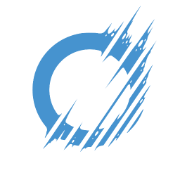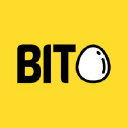
PCG Algorithm Engineer (Open World)
Lilith games
Job Summary
Responsible for designing and implementing innovative procedural content generation algorithms and systems based on spatial relationships, visual targets, and design requirements. Utilize technical tools like Houdini or self-developed frameworks to build efficient and controllable generation pipelines, optimizing for efficiency, controllability, and quality. Integrate generated content into target platforms such as Unity or other engine/application frameworks, developing runtime support modules, editor tools, or automation interfaces. Collaborate closely with art, design, and programming teams to analyze requirements, design feasible technical solutions, provide core algorithm support, and document technical solutions, interfaces, and usage processes.
Must Have
- Design and implement innovative procedural generation algorithms and systems
- Build efficient and controllable generation pipelines using tools like Houdini or custom frameworks
- Optimize generation logic for efficiency, controllability, and multi-dimensional output quality
- Integrate generation processes and content into target platforms (e.g., Unity, engine, application frameworks)
- Develop runtime support modules, editor tools, or automation interfaces for verification, debugging, and adaptation
- Collaborate closely with art, design, and programming teams to analyze requirements and design technical solutions
- Provide core algorithm support and technical enablement to the team
- Solid technical solution design and implementation capabilities
- Familiarity with spatial relationship modeling and complex structure generation
- Solid mathematical foundation (linear algebra, geometry, probability)
- Proficiency in at least one PCG-related tool or framework (e.g., Houdini, custom pipelines, procedural generation libraries)
- Ability to break down problems based on target requirements
- Programming foundation in Python/C#/C++
- Experience in tool development or algorithm implementation
- Familiarity with at least one mainstream engine or development platform (e.g., Unity/Unreal/Web/mobile frameworks)
- Understanding of integration methods for generated content
Good to Have
- Excellent logical thinking and problem analysis skills
- Strong willingness for technical research and fast learning ability
- Good communication and teamwork spirit
- Strong self-drive and passion for technical application and innovation
Job Description
Job Description
1. Procedural Content Generation Logic and Solution Implementation:
- Based on spatial relationships, visual targets, and design requirements, design and implement innovative procedural generation algorithms and systems.
- Utilize technical tools (such as Houdini, procedural modeling libraries, or self-developed frameworks) to build efficient and controllable generation pipelines, solving core challenges in content generation.
- Continuously optimize the efficiency, controllability, and multi-dimensional output quality (e.g., artistic expression, data compatibility) of the generation logic.
2. Integration and Engineering Support for Generated Content:
- Efficiently integrate generation processes and content into target platforms (e.g., Unity, engine, or application frameworks).
- Develop runtime support modules, editor tools, or automation interfaces to verify, debug, and adapt generation results.
3. Cross-functional Collaboration and Technical Support:
- Collaborate closely with art, design, and programming teams to analyze requirements and design feasible technical solutions.
- Provide core algorithm capability support and technical enablement for the team.
- Write clear technical documentation, explaining generation logic, interface specifications, and usage processes.
Job Requirements
1. Experience and Potential:
- 3-5 years of experience in technical art, algorithm development, graphics development, or related fields, with strong interest and practical experience in Procedural Content Generation (PCG).
- Participated in game, digital content, or interactive application development (personal or commercial projects), understanding the application scenarios and challenges of PCG in projects.
- Demonstrate strong willingness to learn, rapid growth potential, and passion for problem-solving.
2. Core Skills:
- Solid technical solution design and implementation capabilities: familiar with spatial relationship modeling, complex structure generation, with a solid mathematical foundation (linear algebra, geometry, probability, etc.).
- Proficient in at least one PCG-related tool or framework (e.g., Houdini, self-developed pipelines, procedural generation libraries), understanding its underlying logic and having extension capabilities.
- Possess the ability to break down problems based on target requirements and be eager to explore innovative solutions combining algorithms and engineering.
- Possess programming foundation: proficient in at least one language such as Python/C#/C++, with experience in tool development or algorithm implementation.
- Familiar with at least one mainstream engine or development platform (e.g., Unity/Unreal/Web or mobile frameworks), understanding how generated content is integrated into them.
3. Soft Qualities:
- Excellent logical thinking and problem analysis skills.
- Strong willingness for technical research and fast learning ability.
- Good communication and teamwork spirit.
- Strong self-drive and passion for technical application and innovation.














